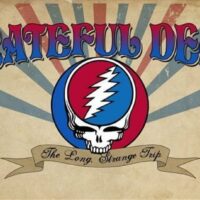

Q is for Quack
Back in the Fall of 1989, as a freshman in an Intro to Political Science class at Colgate University, I got up in front of my class and made a highly controversial statement. My idea, while sincere, was roundly rejected, and I was made to tuck my tail between my legs and scurry on back to my dorm room with nary a supporter. What I proposed on that day long ago was the notion that there should be a test potential voters would have to take in order to cast a ballot. Now I know that evokes all sorts of images of the literacy tests used in the South to suppress black voters back in the 1960’s before they were later banned by the Voting Rights Act of 1965, but that’s not what I’m talking about here. In the Fall of 1989, Dan Quayle (if you don’t remember him, he was the Sarah Palin of the first Bush administration), had just become the vice-president with numerous staffers acknowledging that he had been selected for the post solely because of his attractiveness to female voters. I was concerned that voters were not taking their civil responsibilities seriously enough and should have to show at least some modest understanding of the issues at hand. Though my idea was summarily dismissed, the recent emergence of the QAnon movement makes me think it might not be such a bad idea after all.
If you aren’t aware of QAnon, this group of fear-mongering conspiracy theorists was once a fringe phenomenon — the kind most people could safely ignore. But in recent months, it’s gone mainstream with 10 current GOP congressmen openly supporting the groups’ central ideas and Marjorie Taylor Greene, a Republican from Georgia who has been vocal in her support of QAnon, recently winning a primary runoff, almost assuring her of a seat in Congress. Meanwhile, a Guardian investigation found “more than 170 QAnon groups, pages and accounts across Facebook and Instagram with more than 4.5 million aggregate followers.” Oh, and of course Trump has been re-tweeting their posts for months now, recently refusing to refute their screwball ideas.
So let’s play a little game, shall we? I’ll give you a supposed list of the patently ridiculous ideas this group purports to be factually true, and you pick out the one that is NOT part of their ideology. Here we go:
- There is a worldwide cabal of Satan-worshiping pedophiles who rule the world.
- They control politicians, the media, and Hollywood, and they cover up their existence.
- Donald Trump knows all about the evil-doing cabal and is a sort of savior sent from above to put an end to them.
- Hilary Clinton runs a pedophile ring out of a pizza joint called Comet Ping Pong that has also served as a meeting ground for Satanic ritual abuse.
- “Q” is actually an anonymous top-secret agent who publishes revelations about the deep state.
- There is an imminent event known as “The Storm”, in which thousands of members of the cabal will be arrested, and the U.S. military will brutally take over the country. The result of The Storm will be salvation and utopia on earth.
I know, I know- I really haven’t been very fair, have I? With all of that crazy shit up there, it’s hard to choose just one. But that’s just it, and I really wish I was just joking here, these are ALL beliefs held by QAnon proponents. And while all of this is hard to comprehend, the one that gets me is that these people somehow believe that Donald Trump, who flippantly told high level secrets to Russia and has to brag about even his most mundane accomplishments, could somehow keep his giant yap shut about being a secret agent heroically fighting pedophiles and sex traffickers. Yeah, these people are that kind of nutters.

And yet, guess what- they vote. And in higher representations than the general population. After all, if you have time to sit around on the internet reading far-fetched conspiracy theories, you certainly have enough time to get out and vote. But should they be? Laws in 39 states and Washington, D.C., allow judges to strip voting rights from people with mental disorders ranging from schizophrenia to Down syndrome who are deemed “incapacitated” or “incompetent.” Doesn’t believing that Donald Trump is a savior sent down from above to surreptitiously battle sex trafficking qualify as “incapacitated” or “incompetent”? As a defender of free thought, I am all for people believing whatever they want, but when your Uncle Benny starts to think that the secret alien voices in his head told him whom to vote for, should we really be thrusting an election ballot in his hand? Or as Paul Appelbaum, the director of Columbia University’s department of psychiatry, puts it, “Imagine if it became known that all the residents of a nursing home in the district voted in the election, and many of them were so impaired that they didn’t know what the election was about or didn’t know what filling in a bubble on a form was.” If you think that Trump is an agent of God and that pedophilia is somehow a major campaign issue, do you really have a grasp of what this election is about?
By the way, we already remove the voting rights of an entire group of people on this basis already: young people under the age of 18. Why don’t they get to vote? Isn’t it because we believe that they will not have a firm comprehension of the issues and that they will vote frivolously? Why do we just assume that this magically transforms itself when kids turn 18? My kids are 11 and 13, and if you ask them about whom they would vote for if they could and the issues that inform that appraisal, they would overwhelm you with their knowledge of current politics, and it would in no way entail preposterous claims about Trump saving the world from pedophiles. I don’t want to take away anyone’s right to vote based on their beliefs, but is it too much to ask that they are simply all there mentally-speaking? Perhaps we could ask everyone to take a simple cognitive capacity test, you know, like the one the President bragged about passing recently. Person, woman, man, camera, tv. See- not that hard. Now I get to vote.
Steven Craig is the author of the best-selling novel WAITING FOR TODAY, as well as numerous published poems, short stories, and dramatic works. Read his blog TRUTH: In 1000 Words or Less every THURSDAY at www.waitingfortoday.com







